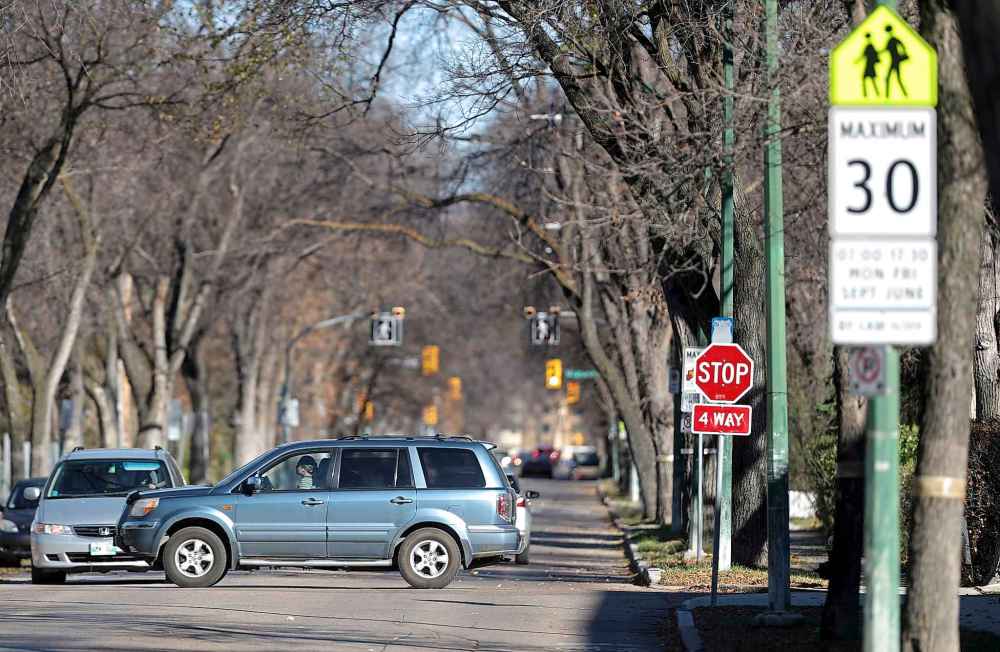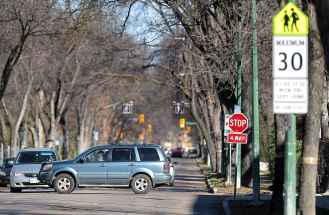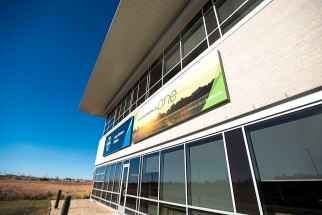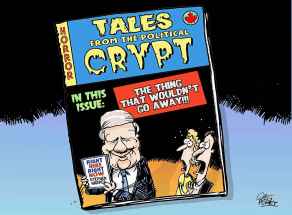Heck no, too slow Poll shows 65% in city wouldn't replace school zones with 30 km/h speed limit on residential streets
Read this article for free:
or
Already have an account? Log in here »
To continue reading, please subscribe:
Monthly Digital Subscription
$0 for the first 4 weeks*
- Enjoy unlimited reading on winnipegfreepress.com
- Read the E-Edition, our digital replica newspaper
- Access News Break, our award-winning app
- Play interactive puzzles
*No charge for 4 weeks then price increases to the regular rate of $19.00 plus GST every four weeks. Offer available to new and qualified returning subscribers only. Cancel any time.
Monthly Digital Subscription
$4.75/week*
- Enjoy unlimited reading on winnipegfreepress.com
- Read the E-Edition, our digital replica newspaper
- Access News Break, our award-winning app
- Play interactive puzzles
*Billed as $19 plus GST every four weeks. Cancel any time.
To continue reading, please subscribe:
Add Free Press access to your Brandon Sun subscription for only an additional
$1 for the first 4 weeks*
*Your next subscription payment will increase by $1.00 and you will be charged $16.99 plus GST for four weeks. After four weeks, your payment will increase to $23.99 plus GST every four weeks.
Read unlimited articles for free today:
or
Already have an account? Log in here »
Hey there, time traveller!
This article was published 18/10/2018 (2614 days ago), so information in it may no longer be current.
A 30 km/h speed limit on residential streets? Most Winnipeggers don’t like the idea at all.
According to a Probe Research poll commissioned by the Free Press and CTV News Winnipeg, nearly two-thirds of the city’s residents think reducing the residential speed limit from its current 50 km/h to 30 is a bad idea. In fact, almost one quarter (23 per cent) called it a “very bad idea.”
Only 35 per cent of the poll’s 653 respondents were in favour of making the change, which Probe also framed as a means of replacing reduced-speed school zones.

“This is very unequivocal,” said Probe Research president Scott MacKay. “There is a strong consensus here that that limit should not be reduced.”
In 2011, amid a string of deadly collisions in Toronto, Dr. Bert Lauwers, then-Ontario chief coroner, published a review of pedestrian deaths. Lauwers recommended all municipalities consider reducing speed limits to 30 km/h on residential streets, as well as adopting speed limits of 40 km/h on other streets unless otherwise posted.
“When a pedestrian is struck by a vehicle travelling at speeds up to 30 km/hr, 10.3 per cent were killed or hospitalized with a serious injury,” Lauwers found among the collisions he analyzed in Toronto that year. That rate doubled when the speed increased to 40 km/h, and at 60 km/h, more than half of pedestrians hit were killed or seriously injured. In 2015, Toronto lowered the speed limit to 30 on certain stretches in the city, and Jennifer Keesmaat, a candidate to become the city’s mayor in its upcoming election, proposes that the rest of the city follow suit.
!function(e,t,n,s){var i=”InfogramEmbeds”,o=e.getElementsByTagName(t)[0],d=/^http:/.test(e.location)?”http:”:”https:”;if(/^/{2}/.test(s)&&(s=d+s),window[i]&&window[i].initialized)window[i].process&&window[i].process();else if(!e.getElementById(n)){var a=e.createElement(t);a.async=1,a.id=n,a.src=s,o.parentNode.insertBefore(a,o)}}(document,”script”,”infogram-async”,”https://e.infogram.com/js/dist/embed-loader-min.js”);
In 2015, Winnipeg Coun. Janice Lukes, then the city’s chair of public works, revisited a previously defeated motion brought forward by then-Daniel McIntyre Coun. Harvey Smith to lower the limit, proposing a pilot project in Fort Richmond. The motion failed and the idea stalled, too.
“I had vicious emails and phone calls when I threw that concept out there,” Lukes said Wednesday. “Those (poll) results are not a surprise at all.
“Cities all over the world do it, and maybe someday Winnipeg can too,” she added.
Graham Larkin, the executive director of Love30 Canada, a grassroots campaign aimed at reducing urban and residential speed limits across the country, said he wasn’t surprised to see the lack of support for the policy, which many cities in Europe have embraced, and which Calgary’s city council recently endorsed.
“It’s not surprising, and it’s disappointing,” Larkin said. “When it comes to road safety, in many ways, (Canada) sucks.”
Calgary’s administration will report back to council’s transportation and transit committee in 2019. The report will examine where to implement the reduced speed limits and, if so, at 40 km/h or 30 km/h.
Despite support for reduced speed limits among urbanists and other advocates, the general consensus Probe found is that if the majority of the city’s residents had a say, they’d be in stark opposition.
"People really don’t like this idea," said MacKay. "It’s really a non-starter, as far as they’re concerned."
Certain groups, however, were more likely to support a 30 km/h limit than others.
Forty-eight per cent of respondents with children under the age of 16 thought the reduced-speed limit proposal was a good idea, compared with 29 per cent of respondents without children at home.
Residents in the city’s core supported the 30 km/h limit at a rate higher than the city-wide results (42 per cent vs. 35 per cent), and respondents with lower household incomes supported the policy at a much higher rate than those earning more money.
Among the respondents who live in households with income less than $30,000, half supported the reduction. Meanwhile, among people living in households with income over $100,000, only 32 per cent of respondents indicated support for the idea.
The data, particularly regarding families with children at home, made sense to MacKay, as speeding tends to be of greater concern to parents of young children than the general population.
As for Lukes, who’s been acclaimed for another term as councillor for Waverley West, reducing the speed limits and increasing road safety for pedestrians remains a concern, moving forward.
"To do that, it’ll take strong leadership and good communication, but we don’t have much of that right now," said Lukes, who has endorsed Jenny Motkaluk’s campaign for mayor. "(Reducing speed limits) will happen. I’m confident in that, but not in the near future."

Ben Waldman covers a little bit of everything for the Free Press.
Our newsroom depends on a growing audience of readers to power our journalism. If you are not a paid reader, please consider becoming a subscriber.
Our newsroom depends on its audience of readers to power our journalism. Thank you for your support.









